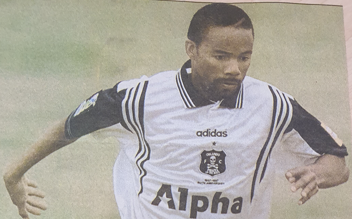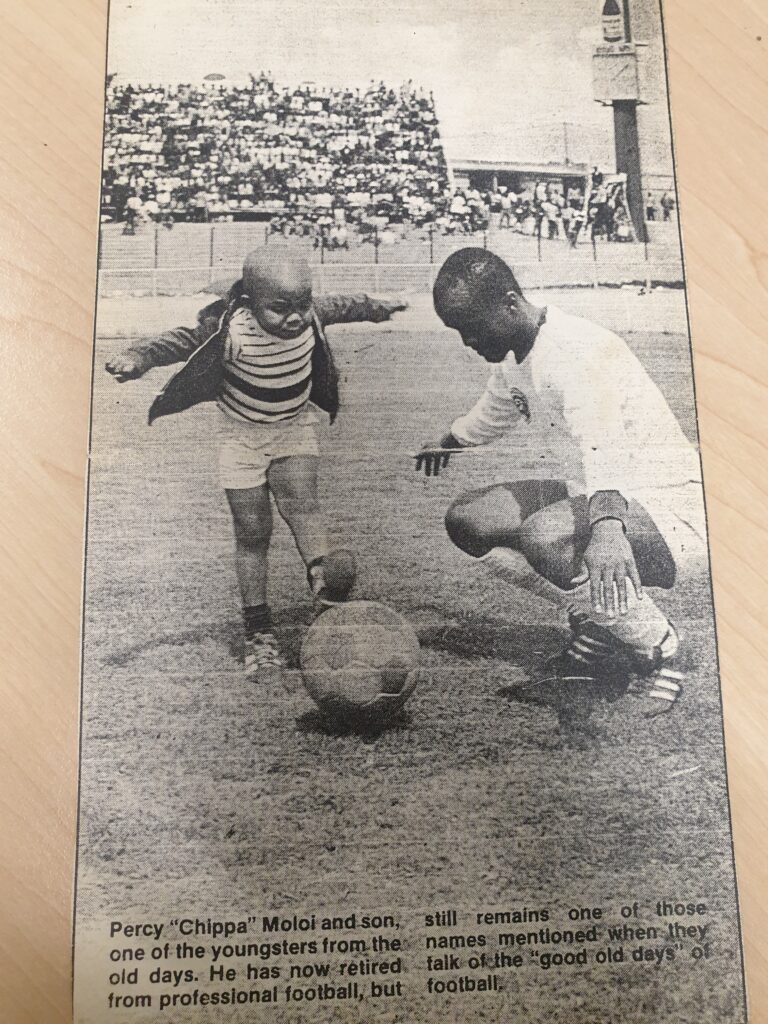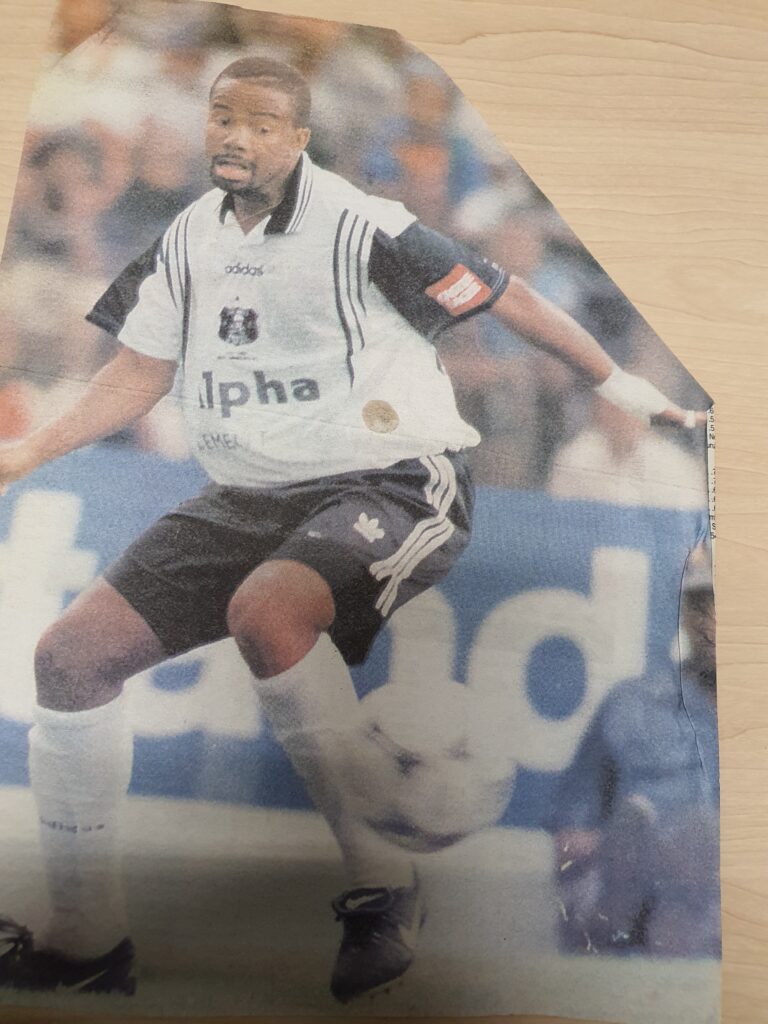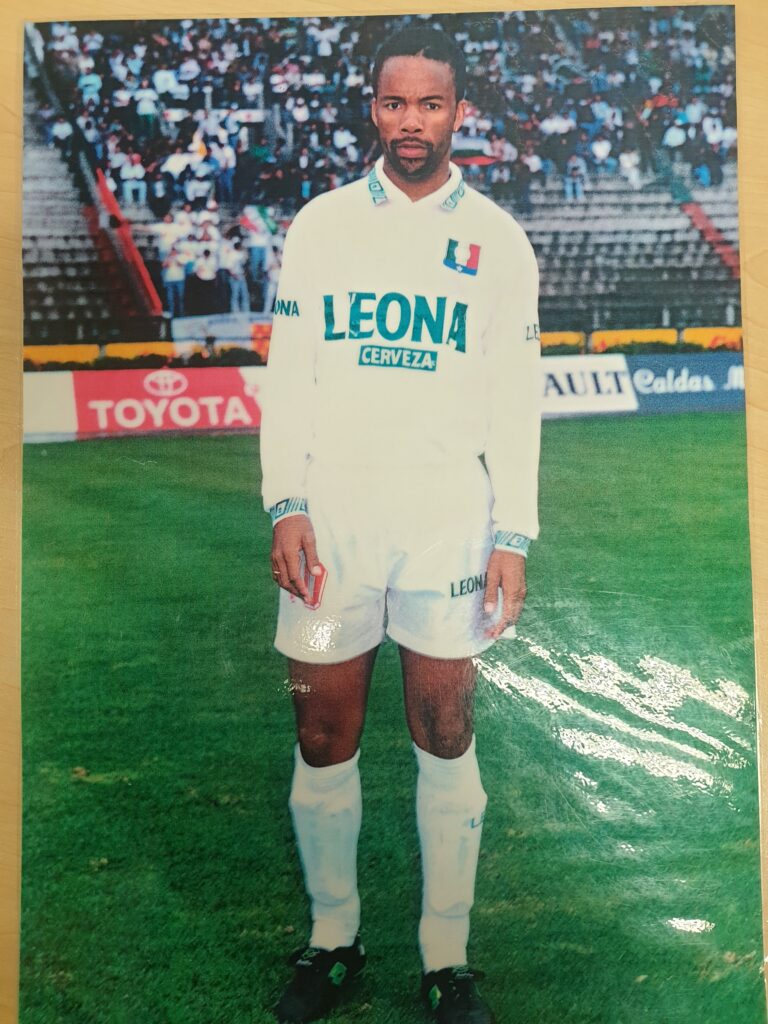Tebogo Moloi’s lifetime of servitude to Orlando Pirates

When Tebogo Moloi joined Orlando Pirates in 1987, he earned R437 per month and he was fine with it.
The son of Orlando Pirates legend, Percy ‘Chippa’ Moloi, Tebogo had always been taught that dedication and servitude to the skull and crossbones was noble.
Chippa’s son was born the same year that Kaizer Motaung left Pirates, 1968 the year of the Phantom Split. In that year of great upheaval, Chippa had also given up on the black and white, and like Kaizer, a man with whom he had terrorised opponents as the heartbeat of the Pirates side in the ’60s, had left to form his own club Hungry Lions of Rockville.
But Moloi, yearned for the return of the glory days for the Bucs, days when Pirates was a smooth-running machine and boardroom brawls did not spill onto the field of play and affect the team.
The glory days would come back to EzikamaGebhula, senior Moloi was convinced, and when history was made on the pitch, his son’s feet would be one of those shaping it.
Before that, a lot of sacrifice was needed and Tebogo’s pocket, in his early years at Pirates, would feel the brunt of it.
When he joined Pirates 33 years ago, the Sea Robbers’ war chest was so pitifully bare that the club could not even afford to celebrate the 50th anniversary of its historic birth.

“When I joined Pirates, it was 1987,” Tebogo tells FARPost in an interview held at a Fourways restaurant in Johannesburg. “They were celebrating the 50th anniversary that year but there was no way they could celebrate because of financial challenges. I didn’t play for Pirates because of money, I was schooled about what Pirates is. My father had a vision that Pirates at some stage would become what it is now.
“I’ve never had a signing on fee from Pirates. My salary has always been two digits. I earned R437 when I joined Pirates.
“If my father wanted to make money out of me, he would have taken me to another team where I’d get a signing on fee and a huge salary. I was taught to go and serve this team. I wasn’t taught to go and make money out of this team.”
Hard work. Sacrifice. Those were the principles that Tebogo lived by while he donned the black and white strip. In the past he has spoken about the weight of Bucs’ jersey, how it seemed to sit heavily on the shoulders of those that wore it, and how one was only ever released from the pressure when they retired and hung up the jersey one last time. Put that way, playing for the Buccaneers seems like a burden, a chore that one has to endure. But perhaps the painful sacrifice and hard work was what was needed to make one a winner. After all, Tebogo, when he was little more than a toddler, already had a front-row seat as the Bucs created history.
“When I was five years old, I was their lucky mascot for the 1973 team that won everything on offer. I was their lucky mascot. When I was 18, I joined this team, never trained with them but played in a cup final and scored in both home and away games,” he says with visible pride.
The tale of how Tebogo initially joined the first team at Pirates is a rather curious one. When one thinks of a big, professional outfit like Pirates, images of pampered stars with fat bank accounts come to mind. When he arrived at the Soweto giants, however, no such perks and creature comforts were afforded to him. So haphazard were the arrangements that one might have mistaken the Bucs, the old pride of Soweto, for an amateur outfit.
“In 1987 when I signed with Pirates, I never trained with them, I was in Bophuthatswana in school. So, Monday to Friday I attended school and then on a weekend I’d come and play for Pirates. I’d come to Joburg just to play and then go back.”
Pirates had visited Mafikeng to play a friendly around October in 1986. Bophuthatswana was an independent country with the BOPSOL League in which Tebogo cut his teeth.
“We played friendlies against big teams and when Pirates came to play my team, they invited me to play in the Spectacular. Doctor Khumalo also played there. I was still in matric and my dad didn’t allow them to have me permanently. He insisted that I first finish school,” he says.

Playing week in week out with the team demanded sacrifice on his part, something that went on to define his relationship with the Sea Robbers.
“So, they went into an agreement that I would do school from Monday to Friday and then come to play on a weekend.
What his experienced at Orlando Pirates
“Pirates were struggling financially. I’d take the bus sometimes and travel four and a half hours and then get to Braamfontein where the team was camping. Have my pre-match meal which was kingklip and chips. Go to Orlando Pirates and perform, not complaining that I was tired. After the game I’d go to my granny’s house in Rockville, sleep over and then leave on a Sunday,” he says.
Despite his achievements with Pirates, there lingers a feeling of “What could have been” with his career. The near-misses, epic opportunities that, if they had materialised, would have pushed Tebogo to new levels.
“For somebody who was so skilful and so talented to only earn three international caps was scandalous,” says veteran journalist and pundit Thomas Kwenaite. “Tebogo was identical to Doctor, maybe it was a luxury they couldn’t afford to have both of them (in the national team). He was unlucky.”
It was not only at Pirates where Tebogo turned out to be a Nearly Man at times. When foreign hands came knocking on his door Tebogo, who would eventually turn out for Turkey’s Gaziantepspor and Colombia’s Once Caldas, he missed out for one reason or another.
“When I was 23 Fabio Capello came with AC Milan and said ‘I was impressed by four players but especially their number eight, but I can’t sign them because they have picked up bad habits. For them to survive we will have to teach them the culture, language and throw away all these bad habits they’ve picked up’.
“If Fabio Capello could say that about me, it meant a lot to me. Orlando Pirates played Arsenal and I was on the bench. I came on in the second half. The performance got me a contract to go to Turkey. Foreign scouts chose me, Shoes Moshoeu and Steve Komphela.
“It pains me when I think of the night I played against Arsenal. I wish Arsene Wenger was the coach. The form I displayed that 45 minutes, he would have signed me,” he says self-assuredly.

Two figures loom large in Tebogo’s life and career. One is Doctor Khumalo, a friend from the old days in Soweto who has acknowledged that he might have lost his way had Tebogo not pulled away from the brink, just as the bright lights of Johannesburg were seducing him like they have done to many a player before and after him.
Comparisons with Khumalo are inevitable, given the similarities in their styles of play and also given the fact that they played for teams that have always battled for the heart and soul of Soweto with a furious, sometimes violent, intensity.
In many ways, the two maestros feel like two sides of the same coin, divided only by their club loyalties.
“My father won the BP Top 8, I won it and I also won it as an assistant coach. Doctor’s father won it, he won it as a player and an assistant coach,” says Tebogo, who is currently the coach of Lesotho side Linare.
The other man who looms large in Tebogo’s career is his father, a man he was fated to be unfairly compared to the moment he pulled on the black and white of Pirates.
“As a person I think he’s a gentle soul, full of jokes, I discovered he had been largely misunderstood as a player being the son of one of the greatest players the country has ever produced,” explains Kwenaite. “Naturally, there’d be comparisons. He quickly embraced the fact he can never be as good as his father.
“A lot of people including Ace Ntsoelengoe told him he would never be as good as his father. He embraced that fact and I think that helped him. He started working on his own strengths.”
In the end some might look back at Tebogo’s relationship with the Sea Robbers as one where one side sacrificed too much and did not get nearly as much in return. From those days as a young mascot, to the days spent travelling cross-country just to get to matches, to the years spent as the second-in-command on the Bucs bench, some might feel like he got the raw end of the deal when all was said and done.
For him, however, Pirates, the side that he dedicated his life to, remains the foundations for his life and career.
“Pirates gave me beautiful memories. I retired early because I didn’t want the paying spectator to get tired of me,” he says.
He will always bleed black and white!